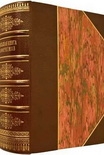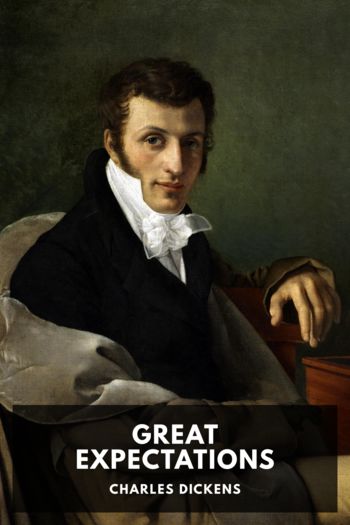Composite Creatures Caroline Hardaker (smart books to read TXT) 📖

- Author: Caroline Hardaker
Book online «Composite Creatures Caroline Hardaker (smart books to read TXT) 📖». Author Caroline Hardaker
Our little table was positioned in front of a huge aquarium, which reached up to the ceiling and across the wall. The glass looked thick as brick, and made a dull clunk when Art tapped a knuckle on it. At head height, between the waving reeds, a shoal of guppies flickered with long, flashy tails, and fish with dalmatians’ spots cut through the gloom to follow my finger across the glass. We each picked our favourite fish. Art chose a white guppy with a blue sheen which he named Albatross, and I chose the little brown catfish, which snuffled around on the sand with her feline whiskers and otter-like mouth. She was the only one that moved slowly enough for me to make out the tiny stitches holding her together, the bulging seams.
The right time never came to show our portfolios, so we decided to exchange them at the end of the night, taking them home to read before discussing them at our next date. I was even more thrilled about this than I let on, as this seemed like a far less mortifying way to share the inevitable. If only we all could be absent when we’re standing in the centre of someone else’s room for the first time, naked.
Surprisingly, deciding what to include in my portfolio hadn’t been as difficult as working out what to wear that night. Easton Grove had sent me their official protocol list, but I didn’t need it. I seemed to just know what would be required of me, and putting this on paper was always easier than living it in the flesh.
I included my CV, which mainly recorded my career history beginning with my teenage job in the bakery and ending with my insurance job at Stokers. I tried to make the most of my responsibilities, keen to make myself seem like a “catch”, but it was obvious to anyone reading the facts that I was more of a “cog”. Once I realised that, it seemed better to be frank about it upfront after all. My job was to process small insurance claims. I never spoke to the clients myself – my part was to sit in the middle and transform loss into bankable assets – but I sometimes watched their appointments with the suits and ties through the glass walls of the meeting room. Basically, I saw everyone’s misfortunes, and turned the gears enough for a few pennies to come out somewhere down the line. Though how much dropped into their purse, whenever it did, was never enough. Their eyes said it, even if their lips didn’t.
On its own though, my career history seemed pitiful, so I also included a photograph of the house I grew up in on the Northumberland coast – the rows of houses behind all painted in their pastel colours, prints of two of Mum’s paintings (one of me sitting at a little table with a book and the other of a sea, split by the leap of a blue whale), and a USB stick, containing a file of Edith Piaf songs. I had ummed and ahhed about the music, something about it seemed a bit… pretentious. But I knew the rise and fall of the melodies by heart, and though I didn’t know what the lyrics meant it didn’t matter, because the notes made my blood flow in quixotic waves. I hope Art would understand that, even just a little bit.
This all would’ve been fine on its own, but my portfolio still lacked the spark that made me, me. This disturbed me, because the gaps say more about you than what’s between the pages. I tried writing something, a poem, a few lines of meaning, but it went nowhere and meant nothing. So after a few increasingly frustrated evenings of scribbling, I scrapped my futile attempt at creativity and instead slipped inside an old photo of a seagull that I’d picked up at an antiques market years before. I wished I still had the feathers in the egg-cups. How significant it would have been to fold something so irrefutable between my pages. But they were all gone now.
By the time I got home from La Folie, the Shiraz was bubbling back up my throat. I locked the door to my flat and threw myself on the sofa, face-down. The room shuddered and swayed, the walls pulsing with the beat of Art’s voice, every word he’d spoken. It was late and my flat was silent, yet it was so very, very loud.
I turned on the TV to drown it out, and unzipped Art’s leather folio on the coffee table. He’d included his CV, ironed crisp, detailing his journey from his first job as a junior copywriter to full-time authorship. Here was a list of his published novels, and I counted seventeen, including the one currently in progress. Scanning the list, I hadn’t read any of them, but I’d heard of one or two of the titles, and could remember one or two of the covers. They were all crime novels, not my sort of thing but the sort of paperback people snap up at the airport for holiday reading. I would never have told him this, but I looked down on them. These were lives written to templates, and it made my skin crawl that the main character – though so flawed in all the usual ways – claimed to never see the ending coming.
But looking at Art’s list of successes was still enviable, and with a sickening jolt I realised that he would be looking at my own paltry resumé right now. I let the CV waft back onto the table and picked up one of the two novels he’d included. The title Frame of Impact groaned in heavy blue and black. I turned it over and on the back was a greyed-out picture of Art sitting in a library, the desk in front of him messy with open volumes and stacks of old hardbacks,





Comments (0)